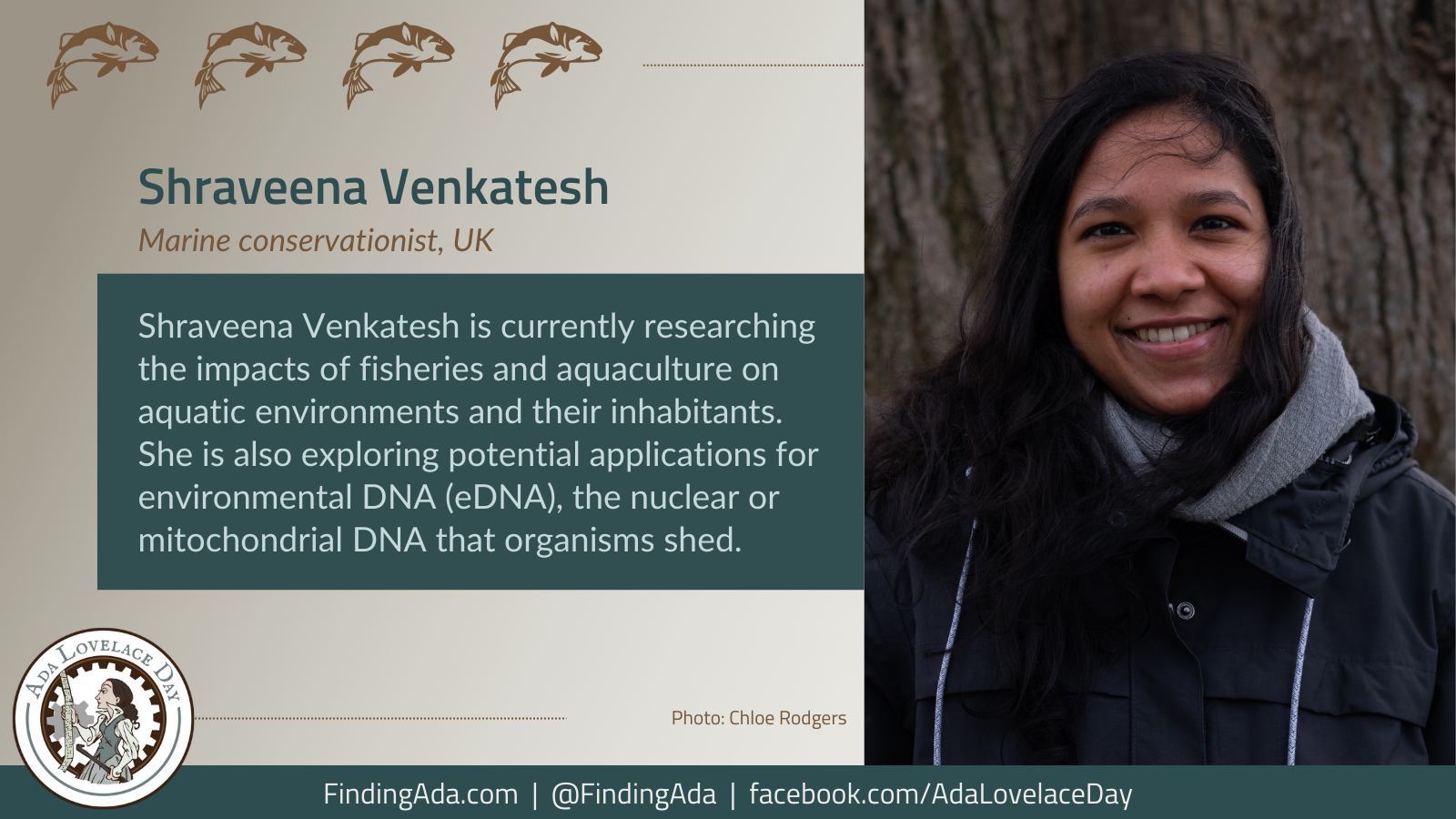
This post was contributed by Chloe Rodgers and is an extract from her Highland Women in STEM project.
Shraveena Venkatesh
Shraveena Venkatesh is a PhD student at The Rivers and Lochs Institute University of the Highlands and Islands, currently researching the impacts of fisheries and aquaculture on aquatic environments and their inhabitants. She is also exploring potential applications for environmental DNA (eDNA) – nuclear or mitochondrial DNA that an organism sheds into the environment. She obtained her MSc in Marine Biodiversity and Conservation at Ghent University in Belgium, and took her original BSc in Zoology, Botany and Chemistry at Christ University in Bangalore.
She first became interested in marine animals aged 12 years old, spending much of her time at the beach. Venkatesh collected shells and examined crabs, pondering about other species in the ocean. Documentaries and books about marine animals strengthened this interest, and led to her pursuing her BSc. During this time, she developed an interest in conservation and exploring the effect of humans on marine environments and organisms.
Venkatesh’s PhD journey has allowed her to collaborate with many other PhD students and researchers, several of whom are also women like herself. She has found this a very rewarding and inspiring environment to be part of. When asked how she thought girls could be encouraged into STEM careers, she said:
“I think young girls should be inspired to read more and to be curious and critical. They should also be encouraged to play with more active toys at a young age, rather than passive ones that are traditionally considered more suitable for girls. As a society we need to resist stereotyping genders and assuming the characteristics or abilities of people based on their gender. Other women, successful in STEM, could be inspiring role models to young girls. Encouraging girls at school when they are interested in STEM subjects could give them the motivation and confidence to learn more and to persevere at succeeding in these fields.”
You can follow her work via her website, Twitter or LinkedIn.
When did you first become interested in your subject area?
I developed an interest in marine animals when I was about 12 years old. I spent time at beaches collecting shells, following crabs and wondering what other animals lived in the vast oceans. I watched a lot of documentaries about marine life and read a lot about the most charismatic marine animals too. While doing my bachelor’s and master’s degree this passion of mine strengthened. I also formed an interest in conservation and in the impacts of human activities on marine environments and organisms.
What do you love about your job/course?
My favourite thing about doing a PhD is that I learn something new and interesting every single day. It’s been a very exciting and rewarding journey so far. In the office and lab, there are other PhD students and researchers working on various subjects, each bringing a different perspective to our daily discussions and conversations and teaching me something new. Several of them are intelligent, capable, young women, successful in their fields, which makes it a very inspiring environment to be in.
What’s the most interesting thing you’ve learned recently? (STEM related!)
Orcas’ brains have limbic systems, like humans do. This means they can feel and process complicated emotions which affects their behaviour.
What do you think could be changed to better encourage more girls into your line of work/a STEM career?
I think young girls should be inspired to read more and to be curious and critical. They should also be encouraged to play with more active toys at a young age, rather than passive ones that are traditionally considered more suitable for girls. As a society we need to resist stereotyping genders and assuming the characteristics or abilities of people based on their gender. Other women, successful in STEM, could be inspiring role models to young girls. Encouraging girls at school when they are interested in STEM subjects could give them the motivation and confidence to learn more and to persevere at succeeding in these fields.